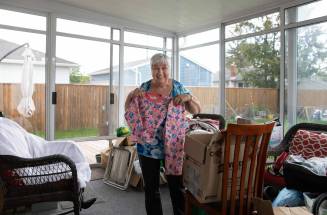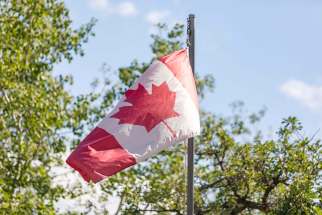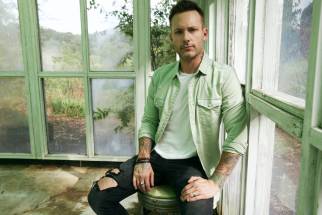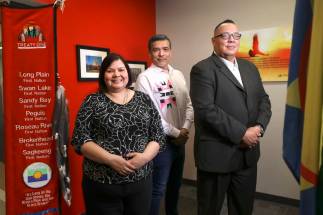Canada Day for all, from all perspectives
Read this article for free:
or
Already have an account? Log in here »
To continue reading, please subscribe:
Monthly Digital Subscription
$0 for the first 4 weeks*
- Enjoy unlimited reading on winnipegfreepress.com
- Read the E-Edition, our digital replica newspaper
- Access News Break, our award-winning app
- Play interactive puzzles
*No charge for 4 weeks then price increases to the regular rate of $19.00 plus GST every four weeks. Offer available to new and qualified returning subscribers only. Cancel any time.
Monthly Digital Subscription
$4.75/week*
- Enjoy unlimited reading on winnipegfreepress.com
- Read the E-Edition, our digital replica newspaper
- Access News Break, our award-winning app
- Play interactive puzzles
*Billed as $19 plus GST every four weeks. Cancel any time.
To continue reading, please subscribe:
Add Free Press access to your Brandon Sun subscription for only an additional
$1 for the first 4 weeks*
*Your next subscription payment will increase by $1.00 and you will be charged $16.99 plus GST for four weeks. After four weeks, your payment will increase to $23.99 plus GST every four weeks.
Read unlimited articles for free today:
or
Already have an account? Log in here »
Hey there, time traveller!
This article was published 28/06/2022 (1257 days ago), so information in it may no longer be current.
Somewhere in the ragtag collection of images that compose my childhood memory, images that circle through my mind like slides in an old carousel projector, there are pictures of the one Fourth of July spent in the United States. We must’ve been in California, on one of our many trips there to visit family.
I don’t remember how old I was but I remember the fireworks glistening in the sky, illuminating a nighttime garden of folding chairs and suburban dads in star-spangled T-shirts and flip-flops. Most of all, I remember the songs, because there were so many. Not just the U.S. anthem, ambitious and bombastic, but a whole anthology of tunes that oozed a sticky and earnest sort of patriotism.
That was the night I heard, for the first time, country singer Lee Greenwood’s 1984 hit God Bless the U.S.A. Even then, at my young age, it struck me as curiously foreign: we didn’t have songs like that in Canada. I watched the suburban dads sing it with teary-eyed gusto, which seared it into my brain; to my later dismay, I never forgot either the melody or the lyrics.
“And I’m proud to be an Americaaaan, where at least I know I’m freeeeee…”
What I didn’t know then was five years after Greenwood released that tune, which became as ubiquitous a soundtrack to American patriotic display as the anthem, the singer recorded a Canadian version, God Bless You Canada. The melody was the same, but the lyrics were tweaked into a laundry-list of Canadian locations. (Yes, there’s a shout-out to Winnipeg.)
That version never made anything like the same impact on its target nation. Today, it circulates in a few enthusiastically amateur YouTube videos, set to stock photography of the Rocky Mountains or the Nova Scotia coast; and to be sure, judging from the comments of those videos, many Canadians do know and love it.
Yet, the song never entered our national consciousness the way its original version did in America. In fact, until writing this column, I’d never even heard of it. For most of my life, Canada could never quite muster the same hegemonic patriotism that was draped on the United States; it’s notable some of what we do have in that style has been imported.
This isn’t to say patriotism — including in its harmful iterations — hasn’t shaped the Canadian experience; only, as compared to our neighbours, it has been different. Canada has never been able to assemble much in the way of foundational myths; it had no battle for independence which it could massage into a puffed-chest fable of its own greatness.
By exposure alone, I can name all of the so-called Founding Fathers; I can name far fewer early Canadian politicians.
Earlier this year, on a work trip to Poland, I made friends with a Peruvian-American journalist who had grown up largely in California. He’d never been to Canada; he asked me to tell him about it. I ran through the basics Canadians always do, jokes about poutine and hockey and moose. I played him clips of old MuchMusic videos and the Tragically Hip.
Those are things Canadians tend to mention, because they’re for the most part benign and inoffensive. It’s telling none of these reflect the Indigenous cultures that still thrive here, but which were for the longest time kept out of Canada’s bigger picture; it’s also telling none of them speak to a unifying identity that runs any deeper than superficial.
So then I told him about the painful public debates of a country that is incredibly young and rapidly changing. I told him about how Canada struggles to come to terms with a colonialism that is ongoing; about how the fraying myth of the polite Canadian conceals far thornier and more nuanced questions about the country, its history, its role in the world.
I told him about how Canada struggles to come to terms with a colonialism that is ongoing; about how the fraying myth of the polite Canadian conceals far thornier and more nuanced questions about the country, its history, its role in the world.
I told him about what it’s like to belong to a place that finds much of its identity in the ways it is unlike the United States — I did it myself in this column — and how that can keep us in a sort of stasis, unable to wrestle with our own problems in an honest way. (Consider how many Canadians firmly believe racism or police brutality are uniquely American blights.)
“The thing about Canada,” I said, “is that it’s still trying to figure out what it is.”
I thought that again, when The Forks announced it was “reimagining” this year’s Canada Day celebrations, crafting instead a July 1 event that was more inclusive, reflective and Indigenous-led. A debate sprung up about whether this was an attempt to “cancel” Canada Day, although for the most part it seemed a little forced.
Most local politicians, including Winnipeg Mayor Brian Bowman, mayoral candidate Coun. Scott Gillingham and Manitoba Premier Heather Stefanson wisely stayed out of it, affirming The Forks is free to program its events as it sees fit. Mayoral candidate Jenny Motkaluk led the charge, stating in a tweet she loves the country “unconditionally,” and would go to “actual Canada Day parties.”
“I think it’s very important that, as Canadians, we have an opportunity to celebrate Canada Day every single year without undue influence or people trying to make us feel like there’s something wrong with celebrating Canada Day,” Motkaluk said in a statement.
If history has shown us just one thing, it’s unconditional love of country is a dangerous drink to sip; it’s not good to love the state regardless of what it does. Beyond that, the idea one shouldn’t have to encounter ideas that make them feel bad about Canada Day seems an unreasonable expectation; one doesn’t have to engage the discussion, but it will take place.
That this brief spat was happening just one week after a retired residential school priest, 92-year-old Arthur Masse, was arrested and charged with abuse only underscored why a flag-waving iteration of the holiday ought not be sheltered from criticism.
After all, there are as many different images of Canada as there are perspectives from which to see it. The country may look very different to a First Nations person for whom Canada is a recent arrival forcibly imposed on their nations, than it will to a descendant of Mennonite farmers invited here by the state so as to rapidly fill the plains with European settlers.
It will look different again to a new Canadian, excited to dive into the culture after years pursuing a professional visa; and to an asylum-seeker who walked over the border, hopeful and relieved but also dislocated in a nation which receives them with suspicion. It will look different again to me, viewing it from my own vantage point.
Yet, we are all here together, and we are all part of what Canada is becoming.
To me, that fact has always been the source of what love I bear for the country. I am Canadian in the simple ways culturally inscribed: I say “eh” a lot. I love curling. I sing along loudest when Gord Downie gets to the part about hallways “hung with pictures of our parents’ prime ministers,” the fond familiarity of the image bearing a bittersweet sort of grace.
I don’t wave a flag; I don’t need a song; I don’t love the state. I don’t think I need to. It isn’t a child, but a concentration of power hung on an idea, always shifting.
I love that we are all here together, having these debates. Trying to carve out the space to for all these perspectives on what Canada is, what it can be, and what it is becoming.
A holiday, that’s always a good thing. It doesn’t have to be the same for everyone.
melissa.martin@freepress.mb.ca
Our newsroom depends on a growing audience of readers to power our journalism. If you are not a paid reader, please consider becoming a subscriber.
Our newsroom depends on its audience of readers to power our journalism. Thank you for your support.



















